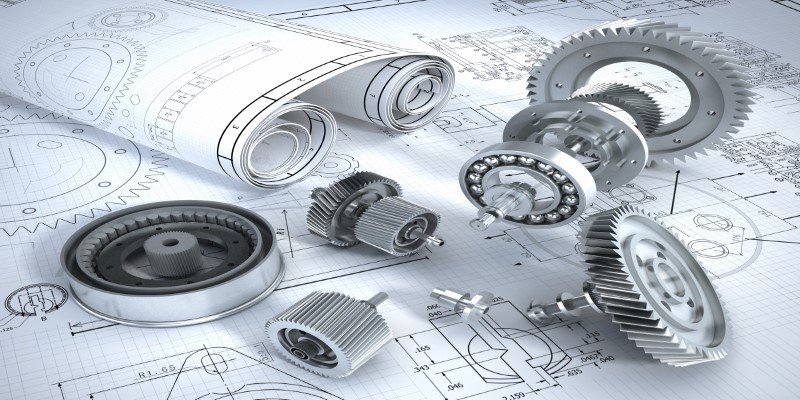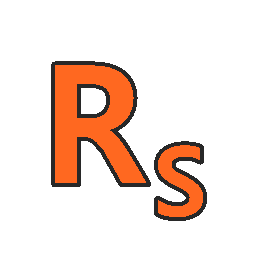
About Course
Basic Mechanical Engineering part 3
Mechanical engineering is the branch of engineering that deals with the design, production, operation, and maintenance of machines and their components. It is a broad field that covers a wide range of activities that involve the development and production of machines, engines, and other mechanical systems. Mechanical engineering is one of the oldest engineering disciplines, and it has been used to create some of the most complex and impressive machines and structures in the world. Mechanical engineers are responsible for designing, prototyping, and testing the machines and engines. They also develop maintenance and repair procedures for machines and structures, and they help to troubleshoot and resolve issues with mechanical systems. Mechanical engineers use a variety of tools to solve problems and create new machines and systems. They use analytical tools to understand the behavior of mechanical systems, and they use computers for simulations and design. They must also be able to use the tools of mathematics and physics to solve problems related to machines and their components. Mechanical engineers must be able to work with other engineers, technicians, and machine operators to ensure that machines and systems are operating correctly. They must also be able to communicate with other professionals, such as engineers and technicians, to develop and design new systems. Mechanical engineering involves a wide range of activities, and it is important for engineers to understand the principles of design and operation of machines and engines. They must also be able to apply their knowledge to the design and construction of machines and components. Mechanical engineering is a field that involves a lot of creativity, and engineers must be able to think outside the box to come up with creative solutions to problems. They must also be able to work with others to develop and implement new machines and systems. Mechanical engineering is an extremely rewarding field, and it offers a wide range of career opportunities. Mechanical engineers are in high demand in many industries, and they can work in many different areas, including aerospace, automotive, energy, and manufacturing. Mechanical engineers can also specialize in particular areas, such as robotics, thermodynamics, biomechanics, and fluid mechanics.
This course is a basic introductory course for all those who wish to learn technical concepts of Mechanical Engineering. Simple animations and basic definitions will enhance your learning experience. Simple concepts and different basic systems of mechanical engineering will be covered here. Animations and diagrams will increase your interests while learning. Basic systems in Automobile, Shafts, Bearings, Gears, etc. will be covered to give a realistic application-based feel of Mechanical Engineering.
Who this course is for:
- Anyone Who wants to Learn Engineering concepts. School As well As Engineering Students.
- Beginner Level for Mechanical Engineering.
Course Content
Basic Mechanical Engineering part 3
-
Types of Reciprocating Air Compressors, Types of Rotary Air Compressors, Types of Air Compressors
09:55 -
Multi stage Air Compressor, Multistaging of Compressor, Two stage Compressor, Compounding compressorn
00:00 -
Difference between Reciprocating and Rotary Air Compressor, Reciprocating and Rotary Compressor, BME
00:00 -
Types of couplings, Coupling types, Function of Coupling, Couplings, Classification of Couplings
00:00 -
Muff Coupling, Sleeve Coupling, Box Coupling, Working of Muff Coupling, Advantages of Muff Coupling
00:00 -
Split Muff coupling, Split Box Coupling, Clamp Coupling, Split Coupling, Compression Coupling, Types
00:00 -
Flange Coupling, Working of Flange Coupling, Advantages of Flange Coupling, Couplings, Coupling, BME
00:00 -
Pin bush Flexible Coupling, Pin Coupling, Flexible Coupling, Bush Coupling, Bush Pin Coupling, BME
00:00 -
Universal Coupling, Hooke’s Joint, Coupling, Cardan Joint, Flexible Coupling, Working of Coupling
00:00 -
Oldham Coupling, Animation of Oldham Coupling, Flexible Coupling, Working of Oldham Coupling, BME
00:00 -
Single plate Clutch, Disc Clutch, Plate Clutch, Working of Single Plate Clutch, Limitation of Clutch
00:00 -
Multi Plate Clutch, Disc Clutch, Plate Clutch, Multiple Plate Clutch, Working of Plate Clutch,Clutch
00:00 -
Centrifugal Clutch, Working of Centrifugal Clutch, Animation of Centrifugal Clutch, Clutches, BME
00:00 -
Types of Brakes, Block Brakes, Single Block Brake, Double Block Brake, Block Brake, Working of Brake
00:00 -
Band Brakes, Types of Band Brakes, Simple Band Brake, Differential Band Brake, Working of Band Brake
00:00 -
Drum Brake, Shoe Brake, Internal Expanding Shoe Brake, Working of Drum Brake, Expanding Brake, BME
00:00 -
Disc Brake, Working of Disc Brake, Animation of Disc Brake, Application of Disc Brake, Brakes, BME
00:00 -
Types of Belt drives/Classification of belt drives/Different Arrangement of belt drives/Belt drivessson
00:00 -
Advantages of belt drive, Disadvantages of belt drive, Applications of belt drive, Belt Drives, BME
00:00 -
Chain drive, Advantages of Chain Drive, Disadvantages of Chain Drive, Applications of Chain drive
00:00 -
Difference between Belt drive and Chain drive, Comparison of Belt drive and Chain drive, Power drive
00:00 -
Gear drive, Advantages of Gear Drive, Disadvantages of Gear Drive, Applications of Gear drive, BME
00:00 -
Types of boiler, Classification of Boiler, Boiler types, Boiler, Boilers, Various Boilers, BME
00:00 -
Cochran Boiler, Fire tube boiler, Multitube Boiler, Low pressure Boiler, Concept of Boiler, BOILER
00:00 -
Babcock and Wilcox Boiler, Water tube boiler, Working of Babcock and Wilcox Boiler, Boiler concept
00:00 -
How to draw Babcock and Wilcox Boiler, Water tube boiler, Animation of Babcock and Wilcox Boiler
00:00 -
Difference between Water tube and Fire tube Boiler, Fire tube Boiler, Water tube Boiler, BME
00:00 -
Boiler Mountings and Accessories, Boiler Mountings, Boiler Accessories, Mountings & Accessories
00:00 -
Pressure Gauge, Bourdon tube Pressure Gauge, Steam Pressure Gauge, C type Gauge, Boiler Mountings
00:00 -
Water Level Indicator, Water Gauge, Water Indicator, Boiler Mountings, Water Level in Boiler, Boiler
00:00
Student Ratings & Reviews
Great course that helped me understand the topic much better
